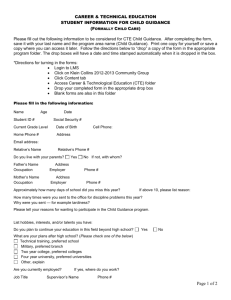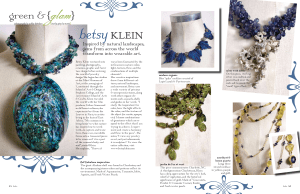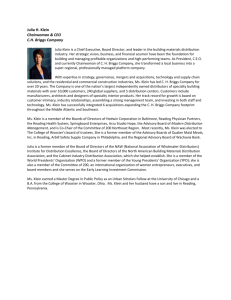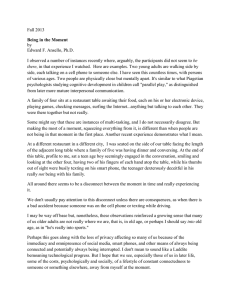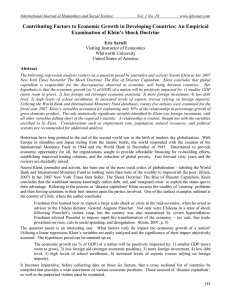From troubled youth to shining light Elise Klein
advertisement
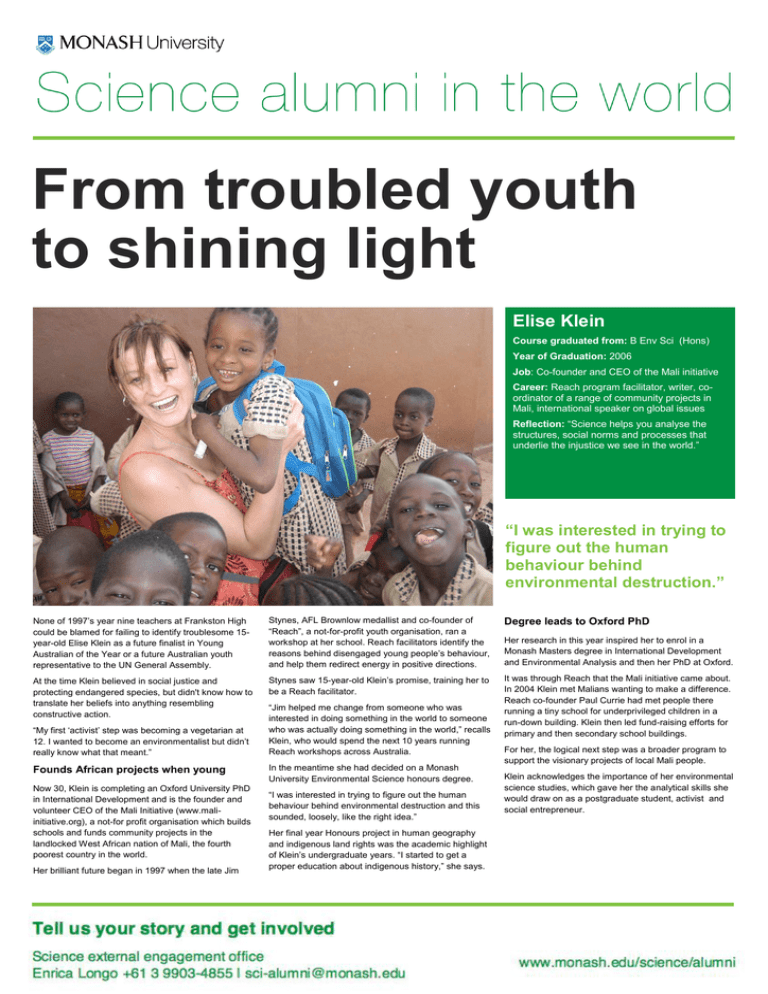
From troubled youth to shining light Elise Klein Course graduated from: B Env Sci (Hons) Year of Graduation: 2006 Job: Co-founder and CEO of the Mali initiative Career: Reach program facilitator, writer, coordinator of a range of community projects in Mali, international speaker on global issues Reflection: “Science helps you analyse the structures, social norms and processes that underlie the injustice we see in the world.” “I was interested in trying to figure out the human behaviour behind environmental destruction.” None of 1997’s year nine teachers at Frankston High could be blamed for failing to identify troublesome 15year-old Elise Klein as a future finalist in Young Australian of the Year or a future Australian youth representative to the UN General Assembly. Stynes, AFL Brownlow medallist and co-founder of “Reach”, a not-for-profit youth organisation, ran a workshop at her school. Reach facilitators identify the reasons behind disengaged young people’s behaviour, and help them redirect energy in positive directions. Degree leads to Oxford PhD At the time Klein believed in social justice and protecting endangered species, but didn't know how to translate her beliefs into anything resembling constructive action. Stynes saw 15-year-old Klein’s promise, training her to be a Reach facilitator. It was through Reach that the Mali initiative came about. In 2004 Klein met Malians wanting to make a difference. Reach co-founder Paul Currie had met people there running a tiny school for underprivileged children in a run-down building. Klein then led fund-raising efforts for primary and then secondary school buildings. “My first ‘activist’ step was becoming a vegetarian at 12. I wanted to become an environmentalist but didn’t really know what that meant.” Founds African projects when young Now 30, Klein is completing an Oxford University PhD in International Development and is the founder and volunteer CEO of the Mali Initiative (www.maliinitiative.org), a not-for profit organisation which builds schools and funds community projects in the landlocked West African nation of Mali, the fourth poorest country in the world. Her brilliant future began in 1997 when the late Jim “Jim helped me change from someone who was interested in doing something in the world to someone who was actually doing something in the world,” recalls Klein, who would spend the next 10 years running Reach workshops across Australia. In the meantime she had decided on a Monash University Environmental Science honours degree. “I was interested in trying to figure out the human behaviour behind environmental destruction and this sounded, loosely, like the right idea.” Her final year Honours project in human geography and indigenous land rights was the academic highlight of Klein’s undergraduate years. “I started to get a proper education about indigenous history,” she says. Her research in this year inspired her to enrol in a Monash Masters degree in International Development and Environmental Analysis and then her PhD at Oxford. For her, the logical next step was a broader program to support the visionary projects of local Mali people. Klein acknowledges the importance of her environmental science studies, which gave her the analytical skills she would draw on as a postgraduate student, activist and social entrepreneur.


